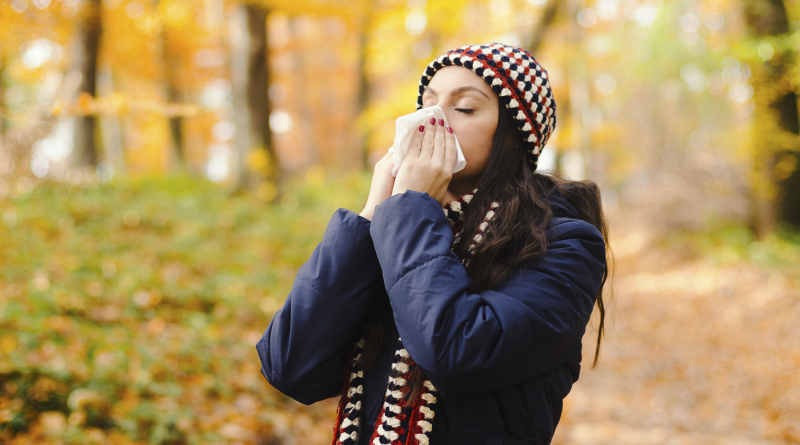How to Cure Fall Allergies?
Many people suffer from seasonal allergies each fall, and since we are now having covid19 with everyone panicking once they hear a sneeze or a cough, it becomes even more important to learn how to triumph over these allergies and protect your immunity. Autumn allergies occur due to pollen, dust, mould, and mildew. The symptoms of allergies are usually coughing, scratchy throat, sneezing, postnasal drip, runny nose, and itchy eyes. The following tips will help you get your allergies under control and have a wonderful fall.
Oral antihistamines, topical medications, and nasal steroid sprays can reduce autumn allergies. There are also nasal and oral decongestants as well as saline solutions that moisten the nose. If you have allergic asthma, you can use oral steroids like Prednisone.
Take a shower after you return from outside. Because your hair attracts pollen, washing your hair after you come back home ensures that you get rid of all clinging pollen. Don’t forget to change and wash your clothes as soon as possible as they can carry a lot of pollen.
If you have a pet, remember to bathe it regularly because pets’ fur and hair accumulate pollen, especially if your pets roam outside in an outdoor area. Regularly bathing and brushing your pets prevents these allergens from entering your home.
Wear sunglasses to protect your eyes from being exposed to pollen.
Stay at home, especially when pollen is at its peak. Pollen starts spready usually between five and ten in the morning.
Keep windows and doors closed because the cold air around your house may carry a lot of pollen.
Use clothes dryers at home: If you are one of those people who prefer to spread their clothes in the open air to dry them, consider drying your clothes in a closed area so that they don’t glean pollen.
Get your prescription by visiting a physician before allergy season begins.
There are some injections intended for chronic and infectious allergies, especially those that do not improve by taking medication or taking the maximum necessary precautions to avoid their causes. Consult your doctor about these injections and their necessity.
There are some foods that help relieve allergy symptoms, including:
Broccoli:
It relieves unpleasant symptoms due to its high concentration of vitamin C, which has an anti-inflammatory effect and thus acts as a sedative. Broccoli is also rich in antioxidants that fight sinusitis and respiratory infection. Note that such vitamins might be lost due to the cooking process; therefore, it is recommended to eat broccoli in salads or smoothies,
Nettle plants:
They contain histamine, which is produced by the body in allergic reactions.
Marine fish:
Herring and salmon contain a large amount of omega-3 fatty acids, which gives the body an edge over inflammation.
Yoghurt:
It strengthens our immune system and mucous membranes, which reduces itching, sneezing, and tears in the eyes.
Dark Berries:
blueberries and red grapes contain an anti-inflammatory and antioxidant effect, which in turn can relieve seasonal fever symptoms.
Ginger:
Because of its anti-inflammatory chemical compounds, ginger helps reduce allergic symptoms naturally.
Onions:
Onions are an ideal natural source of quercetin, which acts as a natural antihistamine as well as other anti-inflammatory and antioxidant compounds that reduce seasonal allergy symptoms.

